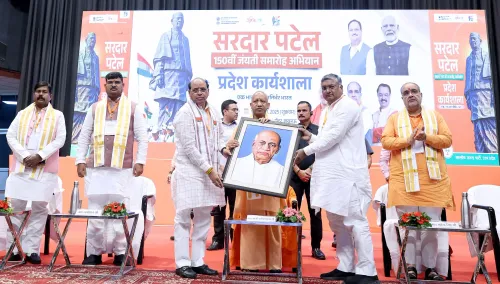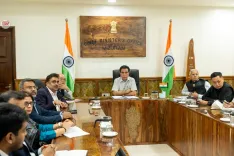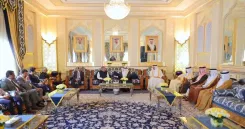Is the Rajasthan Government Ready to Implement Online Weighing, GPS, and Vehicle Tracking?
Synopsis
Key Takeaways
- Introduction of online weighing scales will enhance transparency.
- GPS-based monitoring systems will streamline operations.
- A paperless environment will reduce disputes.
- The initiative is part of a broader digital transformation strategy.
- Radio Frequency Identification (RFID) technology will ensure better compliance.
Jaipur, Oct 17 (NationPress) In a major initiative aimed at enhancing transparency and embracing digital transformation, the Mines Department of Rajasthan is preparing to roll out online weighing scales, vehicle tracking, and GPS-based monitoring systems in the mining industry by the end of this year.
These innovative systems are designed to foster a dispute-free, transparent, and paperless monitoring environment throughout mining operations in the state. Principal Secretary of Mines and Petroleum, T. Ravikant, announced that under the guidance of Chief Minister Bhajan Lal Sharma, the department is advancing in a phased approach to create a fully digital system.
The introduction of this online framework is anticipated to optimize operations for mineral leaseholders while enhancing monitoring between leaseholders, royalty contractors, and the department. On Friday, Ravikant, alongside Director of Mines Mahavir Prasad Meena and other senior officials, assessed the current use of existing online modules and the development of new digital systems.
He highlighted that the department is expediting digital transformation in response to complaints regarding inaccurate mineral weighing, overcharging by royalty contractors, and irregularities in mineral transportation. These issues not only hinder operations for mine owners but also lead to significant revenue losses for the state government.
To combat these challenges, the department is crafting a Radio Frequency Identification (RFID) system that will facilitate a fully online, simplified, and paperless operational framework. This initiative, he stressed, will benefit both mine owners and the government by ensuring better compliance and minimizing revenue leakage.
Ravikant mentioned that the department's IT team is actively developing 22 digital modules, with some — including online mining plan approvals and nodules issuance — already operational. He instructed officials to ensure that all activities related to operational modules and mobile applications are conducted exclusively online.
Furthermore, he directed the Directorate to oversee field-level implementation and guarantee regular utilization of these systems by departmental staff. “The state government is dedicated to making the mining sector paperless, eliminating the need for citizens and businesses to navigate between offices for mining-related services,” he stated. Mahavir Prasad Meena confirmed that the department’s IT team is working diligently to finalize the remaining modules.
He added that monitoring and analysis tools are being enhanced to ensure effective field-level implementation. Additional Director, DMGOMS, Sheetal Agarwal, presented a comprehensive progress report on module development during the review meeting attended by Joint Secretary Mines Arvind Saraswat, Additional Director Mahesh Mathur, Additional Director Geology Alok Jain, and other senior officials.








